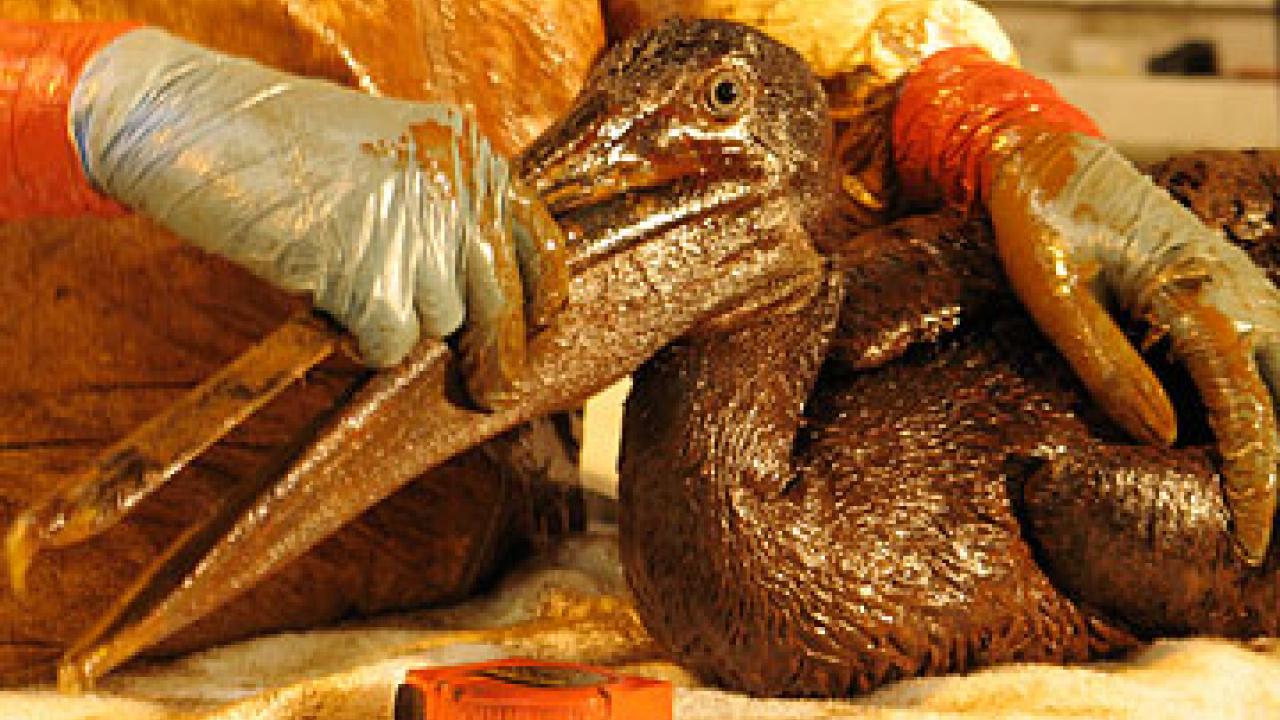Rescuing oiled birds is the right thing to do because more of them survive and reproduce than previously thought, say UC Davis oiled wildlife experts in the first scientific review of all oiled-bird survival studies.
“Photos of extremely oiled pelicans in the Gulf spill have raised the question: ‘Are we helping these animals more by saving them, or by ending their suffering?’ said Michael Ziccardi, a UC Davis associate professor of veterinary medicine and oiled-wildlife expert who has responded to more than 45 spills and treated more than 6,500 oiled birds.
“It’s an entirely appropriate question to ask. I ask it myself every time I work in an oil spill. And my answer, based on our research and on caring for these injured birds throughout the world, is that we help them more by saving them.”
Certainly, some individual oiled birds are so sick that euthanasia is the right choice, medically, ethically and ecologically, Ziccardi added. But those cases typically account for a small percentage of birds brought alive to spill rescue centers.
The paper's authors are:
• Ziccardi, an international expert on the rescue of oiled birds and other wildlife who leads California’s Oiled Wildlife Care Network, which UC Davis manages for the state. He has been based in Louisiana since April 29, where he leads the sea turtle and marine mammal rescue and rehabilitation efforts in this oil spill, in concert with the National Oceanic and Atmospheric Administration (NOAA) and the U.S. Fish and Wildlife Service; and
• Nils Warnock, a bird biologist who until last week oversaw the capture of oiled wildlife in California for the Oiled Wildlife Care Network, and now is the executive director of Audubon Alaska.
Dan Anderson, a UC Davis expert in ecotoxicology and brown pelicans, said he generally agrees with Ziccardi and Warnock’s conclusions.
Anderson is a UC Davis professor emeritus of wildlife, fisheries and conservation biology, and an expert on brown pelicans and marine bird ecology. He studied pelicans in California and Mexico for more than 40 years, throughout their DDT-caused population crash and subsequent recovery. Anderson is not an author of the paper.
“In our studies of oiled pelicans and coots in the mid-1990’s, survival was not as successful as we would have liked,” Anderson said. “But there is some more encouraging research coming out lately on the survival rates of birds that received improved veterinary care, summarized by Warnock and Ziccardi.
“I would caution, though, that rehabilitation of oiled birds is not the solution to the conservation problem. It helps a small part of the population, even though I am personally concerned about saving individual pelicans from a strictly moral viewpoint.
“But this spill has permanently damaged the ecosystem where the birds and their descendants will live, and even the best veterinary care cannot overcome that obstacle. Only onsite restoration and conservation can, in the most optimistic view.”
Media Resources
Kat Kerlin, Research news (emphasis on environmental sciences), 530-750-9195, kekerlin@ucdavis.edu
Michael Ziccardi, Wildlife Health Center, (530) 752-4167, mhziccardi@ucdavis.edu
Nils Warnock, Audubon Alaska, (907) 276-7034, nwarnock@audubon.org
Dan Anderson, Wildlife, Fish and Conservation Biology, (530) 752-2108, dwanderson@ucdavis.edu
